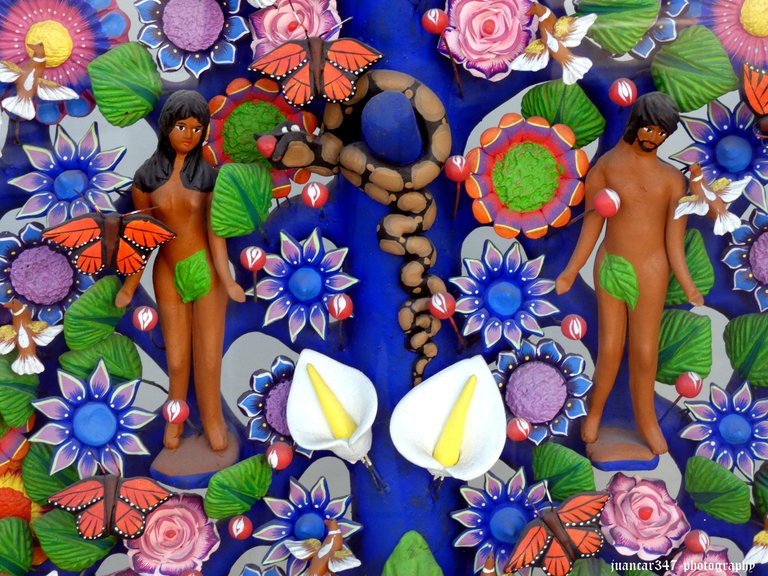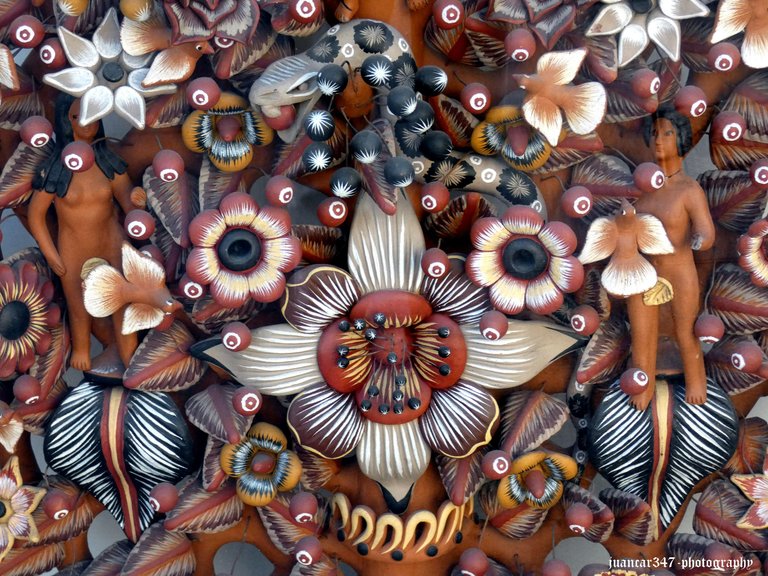
El primer año de matrimonio fue, sin duda, el mejor y de más grato recuerdo, a pesar de que hacían el amor de pascuas a ramos y nunca con la pasión con que lo hicieron la noche de bodas, cuando ambos terminaron de presentarse definitivamente el uno al otro, dejando todas sus vergüenzas en completa transparencia. Teniendo el piso bien amueblado y un utilitario de cinco puertas aparcado en la acera de su casa, constituían un matrimonio cuyo estrato social en aquellos dulces comienzos era superior al de muchos de sus vecinos y a pesar de vivir en un barrio obrero del sur de Madrid –aún era pronto para emigrar hacia el norte, como deseaba Ramiro en lo más profundo de su corazón-, todo el mundo les envidiaba, a juzgar por los comentarios que Maruja escuchaba en conversaciones de escalera, cuya trascendencia estaba muy lejos de afectarla.
A pesar de todo, la felicidad nunca es completa, aunque a veces se aferre uno a pensar lo contrario, creyendo ilusoriamente que la vida es perfecta. Recién llegados de Gijón –por motivos profesionales habían tenido que retrasar el viaje de luna de miel algunas semanas-, apenas tuvieron tiempo de deshacer las maletas, cuando una llamada telefónica les avisó de que don Antón había claudicado, pasando el hombre a mejor vida. Ocurrió por sorpresa y sin sufrimiento, tal y como declaró el médico que certificó la defunción. La muerte, disfrazada de infarto de miocardio, había segado su vida con tanta rapidez, que ni siquiera el sacerdote consiguió llegar a tiempo para administrarle la extrema-unción cuando aún respiraba.
Por aquellas fechas, la ternura de Ramiro se hizo patente una vez más, y Maruja se sintió consolada, mimada y protegida por el hombre al que tanto amaba. Doña Remedios, sin embargo, se llevó la peor parte. Precisamente aquella a la que la evolución no ha dotado al ser humano de una defensa sólida y homologada a las circunstancias: la soledad.
Al principio, los síntomas no eran lo suficientemente claros como para pensar siquiera en la posibilidad de tomar medidas más drásticas e inevitablemente necesarias. Era lógico que después de toda una vida de casados, el cónyuge superviviente se aferrara al recuerdo del finado como un náufrago a la tabla de salvación y hablara de él como si hubiera tenido que desplazarse fuera de Madrid por motivos estrictamente laborales. La comprensión de Maruja en tal sentido se había mantenido firme, con dogmática determinación, no exenta, en absoluto, de dulzura. Incluso Ramiro, serio por regla general, se deshacía en afectos, intentando –eso tenía que reconocérselo siempre en honor a la justicia-, que su suegra se sintiera lo más animada posible, aunque dando por sentado que no se iría a casa a vivir con ellos. En su fuero interno, semejante decisión no fue en absoluto del agrado de Maruja y a raíz de ello vinieron las primeras discusiones, disfrazadas de consanguineidad familiar. Pero como el piso de doña Remedios estaba apenas a un par de manzanas, pensó que no la supondría tanto esfuerzo llevar las riendas de las dos casas y tener a su marido y a su madre debidamente atendidos, como consideraba que era su obligación.
Al principio todo fue maravillosamente bien. Ella se ocupaba de Ramiro y de doña Remedios con férrea determinación e incluso la sobraban fuerzas –y no sólo de voluntad, que también es importante-, para cumplir con sus obligaciones maritales, aunque por más que lo habían intentado, los niños se habían resistido siempre a todos sus esfuerzos. Por supuesto, había intentado comentarlo con Ramiro, pero todos sus intentos resultaron por completo infructuosos y las contestaciones de éste cada vez más desconcertantes y soeces:
- ¡Déjame en paz!. ¡Me sobran cojones para hacer hijos!.
Maruja se derramó entonces como el agua de un cántaro hecho añicos. Sobre todo, cuando sus relaciones íntimas comenzaron a enfriarse, hasta el punto de llegar prácticamente a desaparecer, a pesar de que ella continuaba conservando todo su atractivo y renovaba su vestuario de ropa interior, en un intento fútil por excitarle y hacer su relación mucho más placentera. Resultaba, entonces, una absoluta paradoja pensar que mientras el planeta se calentaba peligrosamente por causa del denominado efecto invernadero -también es cierto que ni siquiera los científicos terminaban de ponerse de acuerdo sobre las medidas a tomar para solucionar tan importante problema-, sus sentimientos se enfriaban cada día más hasta llegar a alcanzar los cero grados del frío absoluto.

The first year of marriage was, without a doubt, the best and most pleasant memory, despite the fact that they made love from Easter to bouquets and never with the passion with which they did it on the wedding night, when both finally finished introducing themselves on each other, leaving all their embarrassments in complete transparency. Having a well-furnished apartment and a five-door utility vehicle parked on the sidewalk of their house, they constituted a couple whose social status in those sweet beginnings was higher than that of many of their neighbors and despite living in a working-class neighborhood in the south of Madrid – It was still too early to emigrate north, as Ramiro wished in the depths of his heart. Everyone envied them, judging by the comments that Maruja heard in conversations on the stairs, whose significance was far from affecting her.
In spite of everything, happiness is never complete, although sometimes one clings to thinking otherwise, deludingly believing that life is perfect. Just arrived from Gijón -for professional reasons they had had to delay the honeymoon trip for a few weeks-, they barely had time to unpack, when a phone call told them that Don Antón had given up, passing the man to a better life. It happened by surprise and without suffering, as stated by the doctor who certified the death. Death, disguised as a myocardial infarction, had cut short his life so quickly that not even the priest managed to arrive in time to administer extreme unction to him while he was still breathing.
Around that time, Ramiro's tenderness became evident once again, and Maruja felt comforted, pampered and protected by the man she loved so much. Doña Remedios, however, got the worst of it. Precisely the one to which evolution has not provided the human being with a solid defense homologated to the circumstances: loneliness.
At first, the symptoms were not clear enough to even think about the possibility of taking more drastic and inevitably necessary measures. It was logical that after a lifetime of marriage, the surviving spouse clung to the memory of the deceased like a castaway to the lifeline and spoke of him as if she had had to move out of Madrid for strictly work reasons. Maruja's understanding in this sense had remained firm, with dogmatic determination, not without sweetness at all. Even Ramiro, serious as a rule, was full of affection, trying -this had to be always recognized in honor of justice-, that his mother-in-law felt as cheerful as possible, although taking for granted that she would not go home to live with her. they. Internally, such a decision was not at all to Maruja's liking and as a result of it the first discussions arose, disguised as family consanguinity. But since Doña Remedios's apartment was just a couple of blocks away, she thought that it would not take so much effort for her to run the two houses and have her husband and her mother properly cared for, as she considered it to be the obligation. her.
At first everything went wonderfully well. She took care of Ramiro and Doña Remedios with iron determination and even had enough strength -and not only of will, which is also important-, to fulfill her marital obligations, although as much as they had tried, the children had resisted. always to all your efforts. Of course, she had tried to discuss it with Ramiro, but all her attempts were completely unsuccessful and his answers were increasingly disconcerting and coarse:
- Leave me alone!. I have plenty of balls to make children!
Maruja then spilled out like water from a shattered pitcher. Above all, when their intimate relationships began to cool down, to the point of practically disappearing, despite the fact that she continued to retain all her attractiveness and renewed her wardrobe of underwear, in a futile attempt to excite him and make their relationship much more pleasant. It was, then, an absolute paradox to think that while the planet was dangerously warming up due to the so-called greenhouse effect -it is also true that not even scientists had finished agreeing on the measures to be taken to solve such an important problem-, their feelings were they got colder every day until they reached zero degrees of absolute cold.

Preámbulo / Preamble: https://hive.blog/writing/@juancar347/spn-eng-cuentame-que-os-paso-novela-preambulo-tell-me-what-happened-to-you-novel-preamble
Capítulo 1 / Chapter 1: https://hive.blog/writing/@juancar347/spn-eng-cuentame-que-os-paso-capitulo-1-tell-me-what-happened-to-you-chapter-1
Capítulo 2 / Chapter 2: https://hive.blog/writing/@juancar347/spn-eng-cuentame-que-os-paso-capitulo-2-tell-me-what-happened-to-you-chapter-2
Capítulo 3 / Chapter 3: https://hive.blog/writing/@juancar347/spn-eng-cuentame-que-os-paso-capitulo-3-tell-me-what-happened-to-you-chapter-3
Capítulo 4 / Chapter 4: https://hive.blog/writing/@juancar347/spn-eng-cuentame-que-os-paso-capitulo-4-tell-me-what-happened-to-you-chapter-4
Capítulo 5 / Chapter 5: https://hive.blog/writing/@juancar347/spn-eng-cuentame-que-os-paso-capitulo-5-tell-me-what-happened-to-you-chapter-5
Capítulo 6 / Chapter 6: https://hive.blog/writing/@juancar347/spn-eng-cuentame-que-os-paso-capitulo-6-tell-me-what-happened-to-you-chapter-6
Capítulo 7 / Chapter 7: https://hive.blog/writing/@juancar347/spn-eng-cuentame-que-os-paso-capitulo-7-tell-me-what-happened-to-you-chapter-7
AVISO: Tanto el texto, como las fotografías que lo acompañan, son de mi exclusiva propiedad intelectual y por lo tanto, están sujetas a mis Derechos de Autor.
NOTICE: Both the text and the accompanying photographs are my exclusive intellectual property and therefore are subject to my Copyright.




